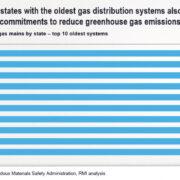WACKENHUT Corporation, which is now known as G4S Secure Solutions (USA) Inc., is a global security solutions company that employs thousands of private security officers, including some in California. Three former G4S security officers filed a class action lawsuit against the company accusing it of having implemented policies and procedures that resulted in its failure to provide off-duty meal periods and rest periods, and provide accurate itemized wage statements to employees, as required by California law. Approximately 13,500 security officers were alleged to have been harmed by the company’s practices.
The three security officers claimed that the company had its nonexempt security officers sign improper off-duty meal period agreements, did not have a rest period policy, and later had a policy requiring security officers to be on call during rest breaks.
Because the class was so huge, there was an issue on whether each employee’s damages pertaining to a missed meal and rest breaks violation is different and, if so, a trial would be unmanageable based on this. The case reached the appellate court and lasted more than 10 years.
Under California law employers must provide their nonexempt employees meal periods and rest periods during the workday. This obligation is met if the employer “relieves its employees of all duty, relinquishes control over their activities and permits them a reasonable opportunity to take an uninterrupted 30-minute break, and does not impede or discourage them from doing so.” Employers who violate these requirements must pay premium wages of one additional hour at the employee’s regular rate.
An on-duty meal period in which an employee is not relieved of all duty is permitted when the “nature of the work” prevents such relief and the employee agrees to on-duty meal periods in a written agreement. This on-duty meal period shall count toward hours worked and must be paid.
As to rest breaks, an employer must authorize and permit all employees to take at least 10-minute rest breaks, for work of every our (4) hours or major fraction thereof. The ten minutes must be consecutive, and the rest period must be “duty-free.” There is no nature of the work exception for an on-duty rest period.
In the case of the G4S security officers, the appellate court noted that the court should not analyze whether damages actually exist. The question is whether the employer in fact failed to provide proper meal periods, rest periods, and wage statements to its employees. Once the issue of the employer’s policy, practice or procedure is established, the court noted that there are reliable statistical methods to prove or disprove the elements of a claim and establish liability on a class-wide basis. In other words, even if some employees did not suffer damages, or suffered only certain types of damages, if the employer’s policy, practice, or procedure regarding the lack of meal and rest periods is uniform throughout its locations, then the employer may be liable for back pay to its employees.
After the court ruled that the case could proceed to trial as a class action, the employer agreed to settle and pay $130 million to the class members.
* * *
The Law Offices of C. Joe Sayas, Jr. welcomes inquiries about this topic. All inquiries are confidential and at no-cost. You can contact the office at (818) 291-0088 or visit www.joesayaslaw.com or our Facebook page Joe Sayas Law. [C. Joe Sayas, Jr., Esq. is an experienced trial attorney who has successfully recovered wages and other monetary damages for thousands of employees and consumers. He was named Top Labor & Employment Attorney in California by the Daily Journal, consistently selected as Super Lawyer by the Los Angeles Magazine, and is the recipient of PABA’s Community Champion Award for 2016.]







